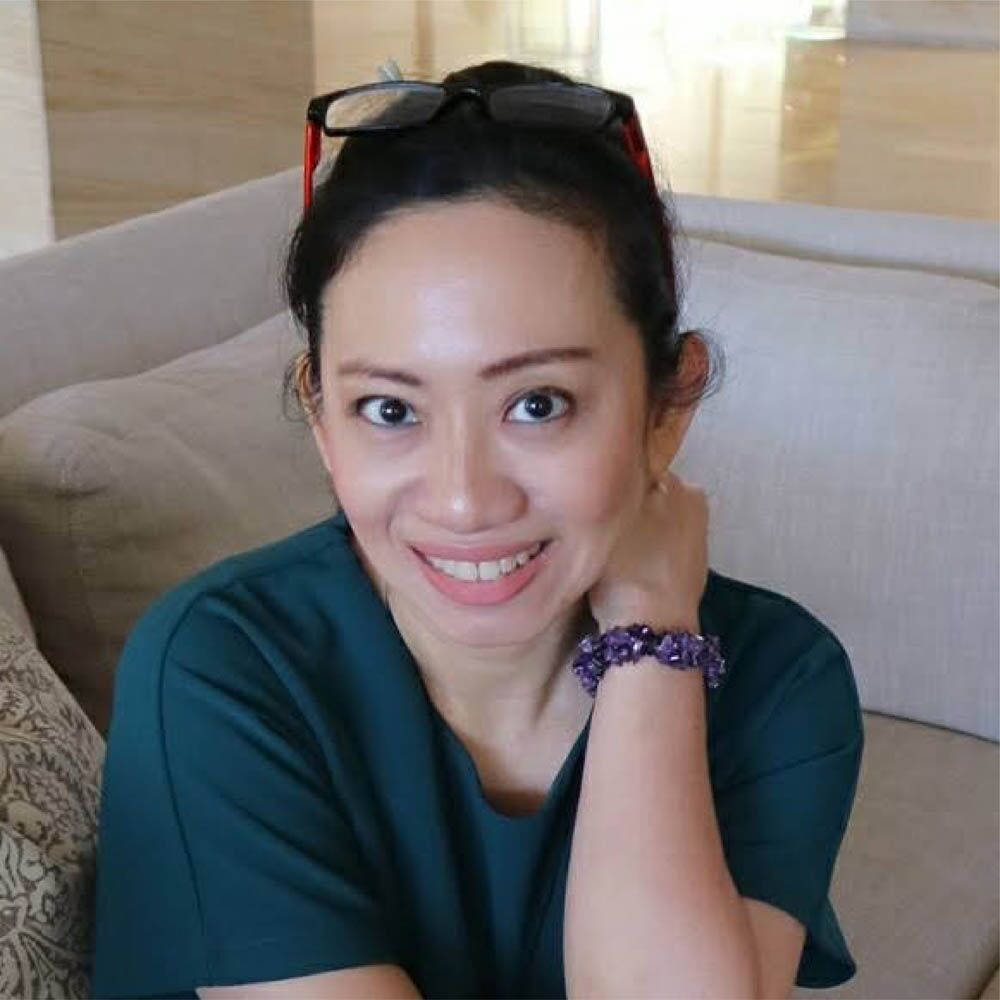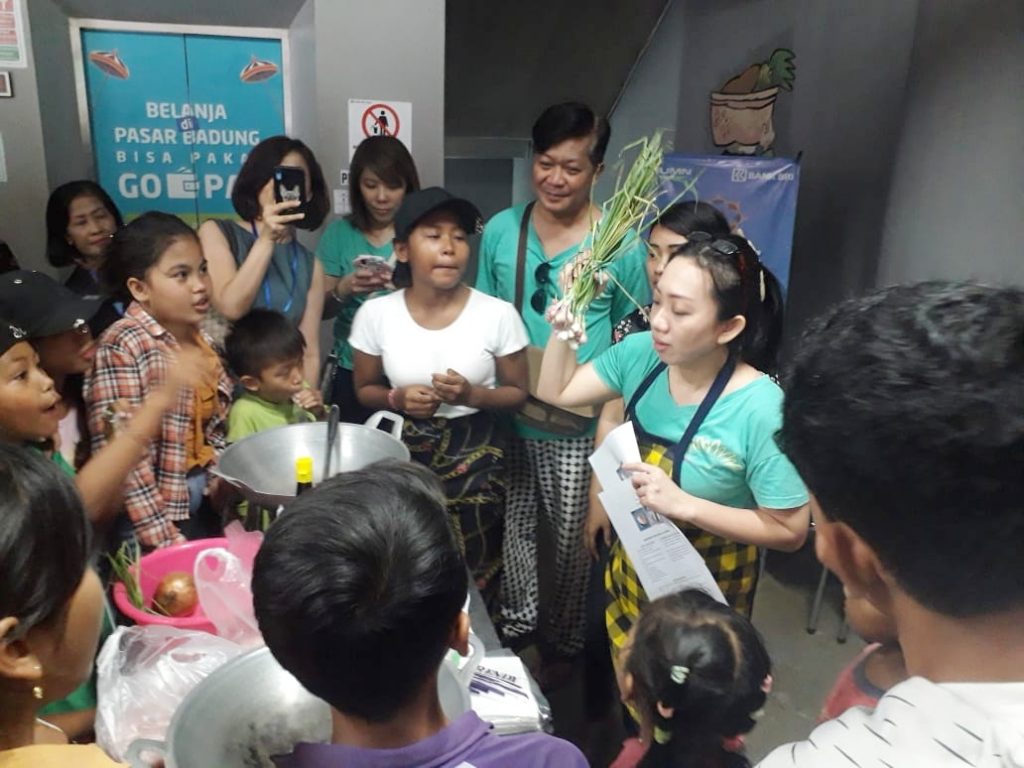With the theme Heroes, Ubud Food Festival 2020 Presented by ABC highlights figures behind the Indonesian culinary scene, who play a significant role in nourishing Indonesia’s gastronomic world. “For our sixth year, we want to recognize and celebrate the people behind the extraordinary flavors and evolving stories of Indonesia’s culinary landscape,” says our Founder & Director Janet DeNeefe. For the fourth installment of our Local Heroes Series, we speak to Debby Lukito Goeyardi, a culinary literacy activist and Co-founder of Kanaditya Anjani Dharma Foundation (Komunitas Kanaditya) in Denpasar, Bali.

Literacy activist Debby Lukito Goeyardi believes that culinary literacy improves people’s quality of life in the long run. Through her work in culinary literacy, she empowers people from children starting in early childhood to women prisoners. “As we all know, literacy is more than just an individual’s ability to read. Literacy also includes the ability to write, speak, compute and solve problems at certain levels needed in daily life. This ability is necessary for each individual to function well on the job, in the family and in society,” said Debby.
Culinary literacy is a type of literacy that is very important in the society. “Culinary Literacy can be defined in two ways. One, it is everything that includes the process of learning about food and cooking. Two, it is about learning through the cooking process,” explained Debby. She also said that in cooking, we can learn various skills, such as Mathematics, reading, science, and more. Cultural literacy and technological literacy are also included in the cooking process.
“It can be said that Culinary Literacy is one of life skills that includes all literacy sciences that should have been taught at an early age for each individual. As a literacy activist as well as a children book writer, I combine the Culinary Literacy with the books that I use for my activities with children,” she continued.
As one of the founders of Kanaditya Anjani Dharma Foundation, she introduced and combined culinary literacy with eco-literacy to children in various circumstances through programs like ‘B.A.C.A’ (Bina Anak Cinta Aksara / Assisting Children to Love Literacy) and ‘Literacy for All’. “Before this covid-19 pandemic, we had various activities that included read-aloud programs and crafts followed by cooking or making a meal together. This way, it is proven that children will understand one subject well when they learn it through a fun way and interactively where they can get involved and use all their senses through the learning process,” explained Debby. She also introduces culinary literacy combined with eco-literacy to women prisoners in one of the prisons in Bali, people in the rural areas of Karangasem, and to mothers of the children who must stay at the hospitals.
The next plan is to collect home recipes based on local wisdom from each individual so that they will have a collection that can be a heritage for the society. Debby was inspired to be a culinary literacy activist because both her mother and grandmother loved to cook. Her grandmother had a catering business for decades, and her mother had had a Sunday class for children around our neighborhood free of charge. “Over time, I finally understood that it was the way for my mother to give free food to the children as they came from less fortunate families that time, as well as teaching them about culinary literacy. So, I consider both of them, my mother and my grandmother, as those who inspire me to empower people through culinary literacy,” said Debby. She also noted that the term ‘literasi kuliner’ was once introduced to her by Wien Muldian about two years ago, and that’s when she started using the term more in her works.

Debby believes that Indonesian culinary world is currently more advanced and livelier, with the increasing number of cooking competitions, both regionally and nationally. More people are interested in cooking schools and cooking skills are not only dominated by women but, men are not reluctant to learn this skill. “Evidently there are many male chefs who become celebrity chefs,” noted Debby.
Cooking is not about just being in the kitchen to cook. “This is why we need to understand culinary literacy combined with eco-literacy. We need to learn more about understanding the characteristics of each ingredient, how to understand a ‘zero waste’ mindset, how to implement a green routine or green habit into our daily life, and more,” explained Debby. She believes that the pandemic with coronavirus can be taken as a ‘wake-up call’ for us all. Debby explained that if we understand culinary literacy combined with eco-literacy, we will have the ability to create a food security, both locally and globally.
Indonesia is rich in natural resources and each region has their own culinary characteristics and philosophy. “This will be our heritage to the future generations where they can learn moral values of the nation through the local cuisines. In fact, this is our ‘treasure’ that we can introduce to the world globally,” she continued. Debby also wants to encourage people to appreciate Mother Earth more by understanding both culinary literacy with eco-literacy to create a sustainable living. “Always remember that the Universe records every good deed that we do to others and all living things on this Earth.”
For updates, sign up to our enews and stay tuned to our Instagram, Facebook, and Twitter.